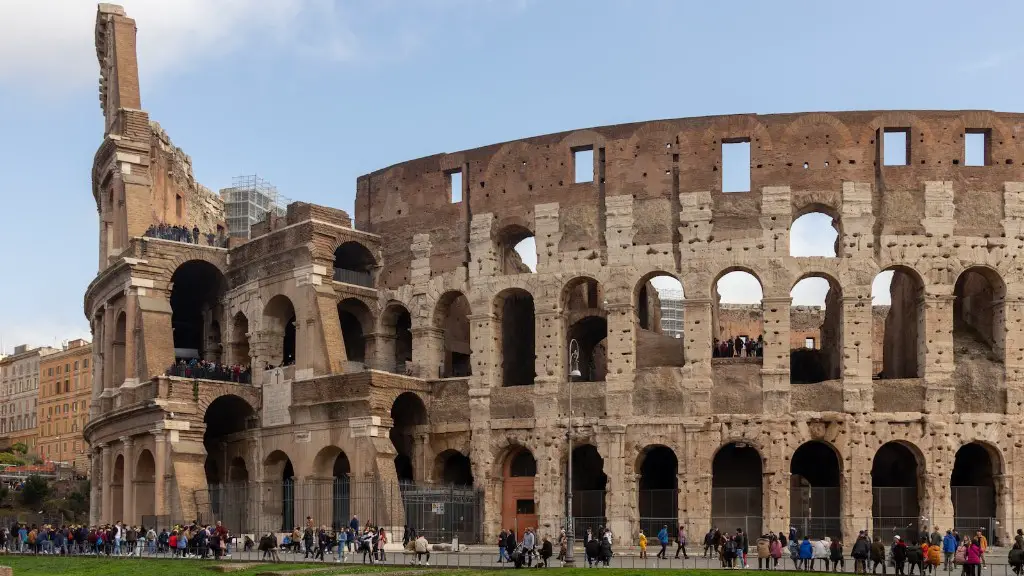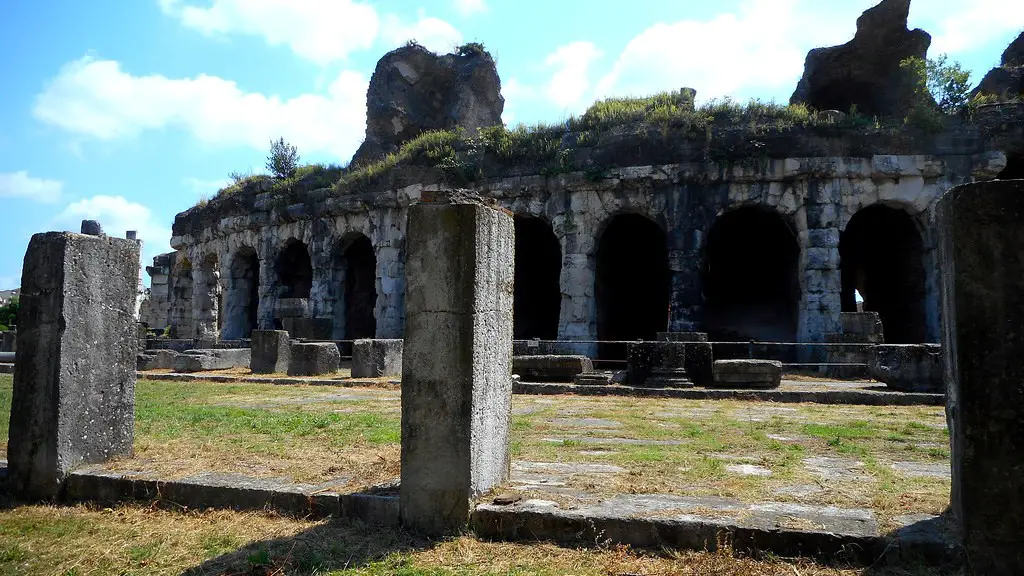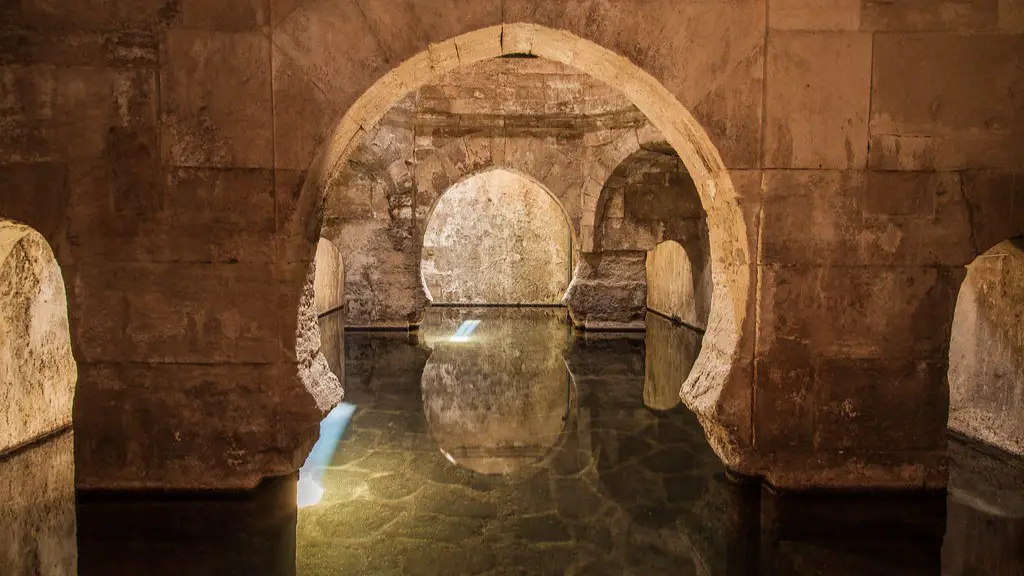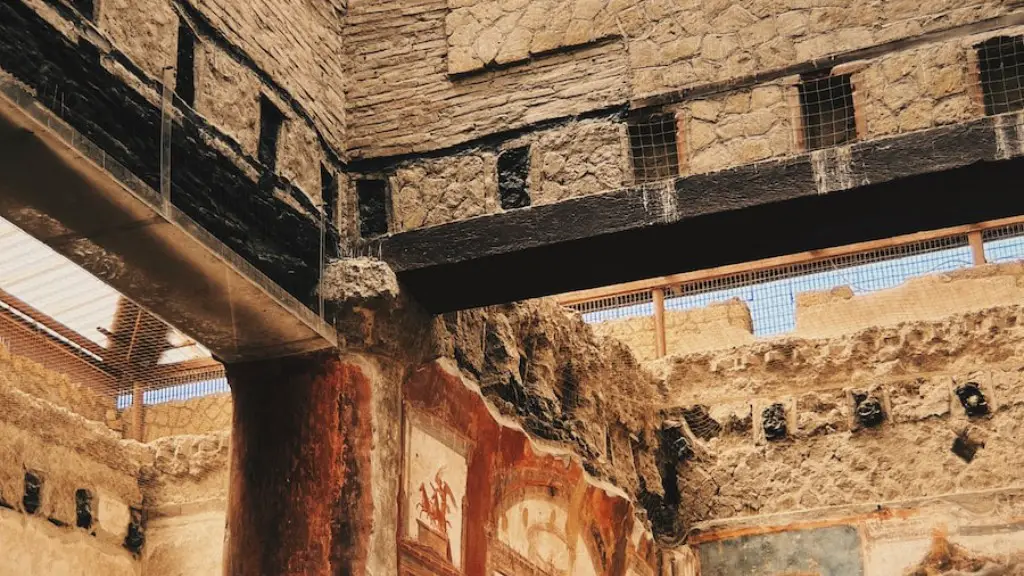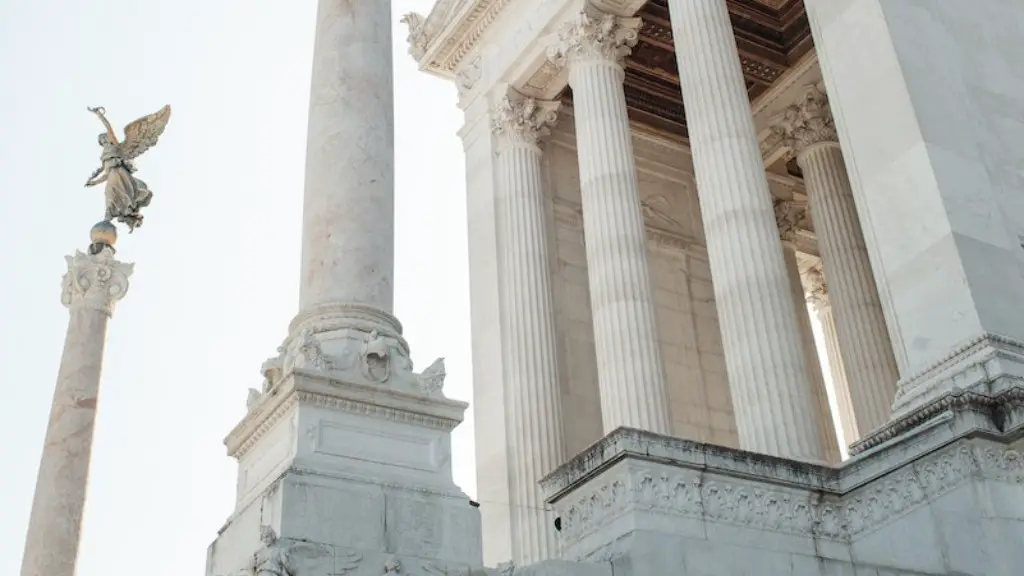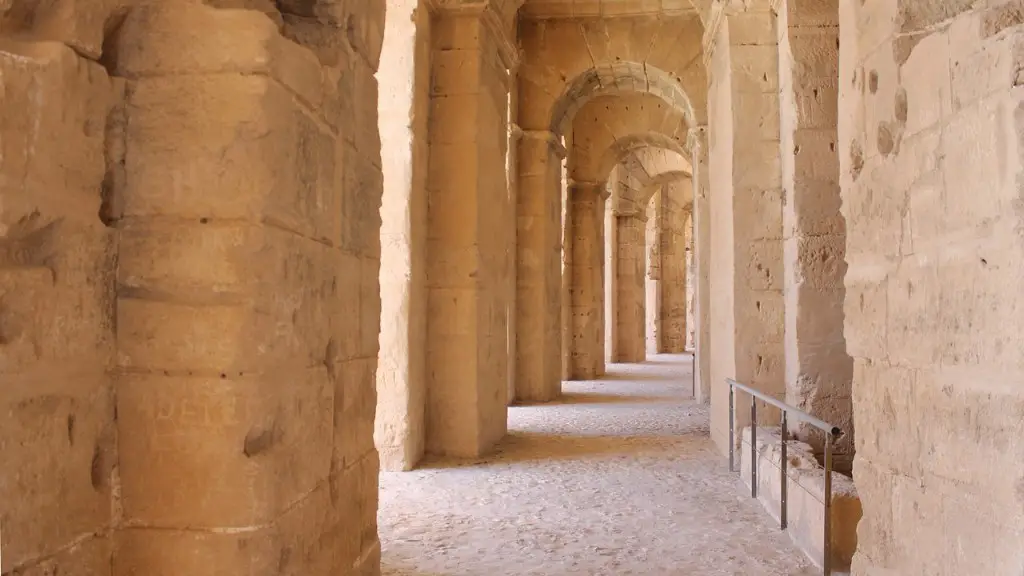The ancient Romans believed in a pantheon of gods and goddesses who maintained control over various aspects of human life. These powerful beings revealed themselves to mortals in a variety of ways, including through natural phenomena, dreams, and omens. In some cases, the gods even appeared in human form to communicate their will. The ancient Romans believed that by showing respect and obedience to the gods, they would be rewarded with prosperity and success.
The gods revealed themselves to the ancient Romans in a number of ways. They might appear in a dream, or in a vision, or they might send a sign, such as a rainbow, or a flash of lightning. Sometimes they would send a messenger, such as a bird or an animal, to deliver a message.
How did the Romans see their gods?
The Romans believed that the gods served a role in founding their civilization and that they helped shape the events of people’s lives on a daily basis. They paid allegiance to the gods both in public spaces and in private homes. The most important temples were located on the Capitoline Hill, where the gods were believed to reside. The Roman pantheon included deities such as Jupiter, Juno, Minerva, and Apollo.
The Romans celebrated special days for gods together by holding festivals to honour them. They filled streets with cheer and decorations, with sacrifices and parties in public and private areas. There were countless festivals every year, usually with multiple each month to celebrate and honour a certain deity.
The most important festival was Saturnalia, which was held in December to celebrate the god Saturn. This was a time of great merriment, when businesses closed and people enjoyed feasts, parties, and gift-giving. Other popular festivals included Lupercalia, a February festival honoring the god Faunus, and the Floralia, a May festival in honor of the goddess Flora.
Did Roman emperors declare themselves gods
The imperial cult was an important part of the Roman state religion which saw the emperors and members of their families as gods. Julius Caesar was officially recognized as a god, the Divine (‘Divus’) Julius, upon his death by the Roman state. The imperial cult was a way for the Romans to show their loyalty and respect to the emperor and the empire.
It’s interesting to think about how the ancient Greeks and Romans must have viewed their gods. To them, the gods were probably just like any other person – they had hopes and dreams, and they were just looking for some guidance to get through life. It must have been fascinating to see how the myths played out in their everyday lives.
Where did the Romans think the gods lived?
The Roman gods were thought to reside on a mountain range known as Mount Olympus. This area was believed to be eternal, and the gods could not pass away in this area. The Romans thought Mount Olympus was up in the heavens and that the gods would watch over them from their residences.
The Roman pantheon of gods began to take on their known forms during the Etruscan dynasty in the 6th century BC. The Etruscans were a major influence in early Rome, and their culture and religion heavily influenced the development of Roman religion. The Etruscans believed in a pantheon of gods, and many of the Roman gods have their roots in Etruscan mythology.
When did Romans stop believing in gods?
In 312 AD, Roman emperor Constantine became a convert to Christianity, and since then, outward religious observance has become a matter of life and death. Prior to Constantine’s conversion, the Romans had no qualms about persecuting people who refused to honor the traditional gods with sacrifices and rituals.
The Roman Gods were originally 12 in number and were said to have resided on Mount Olympus. They were: Jupiter, Juno, Mars, Mercury, Neptune, Venus, Apollo, Diana, Minerva, Ceres, Vulcan, and Vesta. Each god represented a different aspect of human life or nature and was worshipped accordingly. For example, Jupiter was the god of the sky and weather, Apollo was the god of the sun and healing, and Mercury was the god of commerce and communication.
What did Romans worship before the gods
Apart from the gods, who were glorified by the state, every Roman household worshipped spirits. They believed that spirits protected the family, home and even the trees and rivers. These spirits were worshipped regularly.
The religion of ancient Rome dated back many centuries and over time it grew increasingly diverse. Roman religion was influenced by many different cultures, including the Etruscans, Greeks, and Egyptians. As a result, Roman religion was a mixture of many different beliefs and practices.
People in ancient times believed that the gods could be pleased or angered by sacrifices. They would go to temples to make offerings of animals or other precious items. The Romans thought that shedding blood was the best way to reach the gods. So, they would often sacrifice sheep to Jupiter. Sometimes people would build a temple to only worship a single god.
Did the Romans believe in their gods?
The Roman gods were thought to be powerful and responsive to prayer and offerings. The Romans believed that by pleasing the gods, they would be blessed in turn. They would offer sacrifices and perform rituals to honor the gods and request their favor.
The reign of Augustus was seen by many Romans as a return to the city’s true purpose. They believed that Augustus and his dynasty would provide the strong leadership needed to achieve great things. Upon his death, Augustus was declared a god by the Roman people.
How did the Romans view Jesus
The differing perspectives on Jesus between the Romans and the Christians illustrate the different ways that each group viewed him. To the Romans, Jesus was a troublemaker who had gotten what he deserved. However, to the Christians, he was a martyr and his execution only further instability in Judaea. Pontius Pilate, the Roman governor who ordered the crucifixion, was ordered home in disgrace. These differing perspectives illustrate the deep divide between the two groups.
The Deii Consentes were the most important group of deities worshipped by the Ancient Romans. The twelve gods and goddesses of the Roman pantheon were thought to represent the divine power of the Roman state. These deities were worshipped as a group, and each had their own temples and festivals. The most important temples of the Deii Consentes were located on the Capitoline Hill, where the group was thought to reside.
What are some fun facts about Roman gods?
The Roman gods and goddesses were believed to have many great and powerful abilities. Jupiter was said to be able to fly and hold thunderbolts in his hands. Juno’s sacred animal was a peacock and Mars’ symbol was a sacred shield. Mercury was said to rule over good fortune.
Roman religion involved cult worship and was centered around the pantheon of gods. Each god needed an image – usually a statue or relief in stone or bronze – and an altar or temple at which to offer prayers and sacrifices. The primary goal was to maintain the pax deorum, or “peace of the gods,” which was thought to be necessary for the health and prosperity of the state.
Why did Romans copy Greek gods
Most ancient cultures had different names and even different stories about the same gods. So as the Romans conquered the Greeks they adopted Greek Mythology and replaced the gods’ names with traditional Roman gods’ names. Roman mythology is a combination of the ancient religions of the Italic peoples (the Latins, Sabellians, and Etruscans) and the classical religion of the Romans, with many influences from other sources, such as the Etruscan religion, Greek religion, and Celtic religion. The Romans understanding of the gods was therefore based on the interpretations of these other cultures.
Most of the Roman gods and goddesses were a blend of several religious influences. Many were introduced via the Greek colonies of southern Italy. Many also had their roots in old religions of the Etruscans or Latin tribes.
Warp Up
The gods revealed themselves to the ancient Romans primarily through natural phenomena such as lightning, thunder, and earthquakes. They also communicated through oracles, which were interpreted by priests.
The gods revealed themselves to the ancient Romans in a number of ways. Some gods appeared in human form, while others appeared as animals or natural phenomena. The gods also communicated with humans through dreams and omens.
